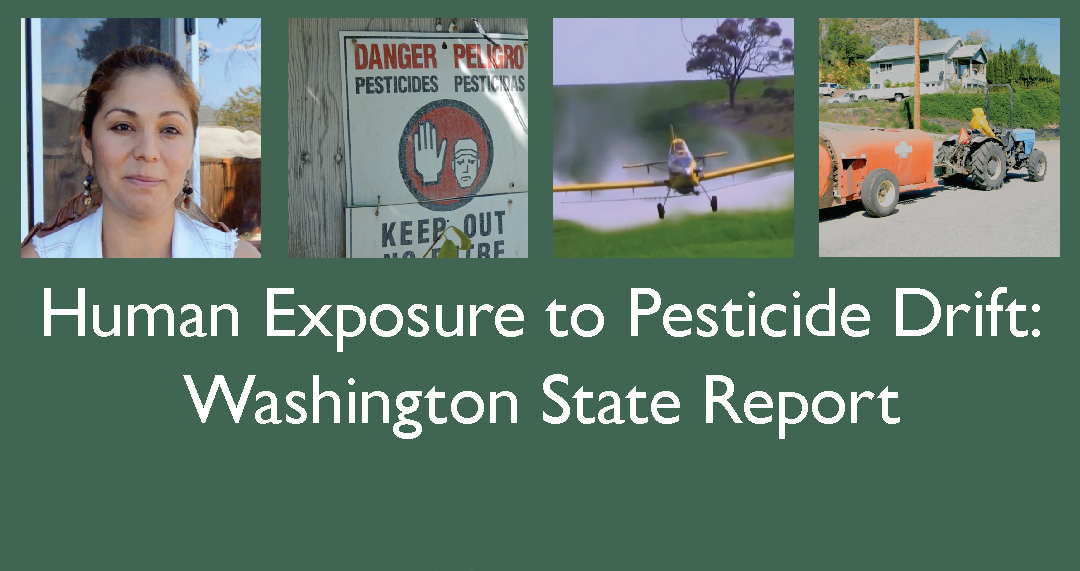Human exposure to pesticide drift is on the rise in Washington State. Department of Health reports show that 49%, nearly half of all pesticide related sicknesses amongst farm workers are caused by pesticide  drift. What makes this worse is the stark reality that 90% of the people exposed to pesticides through drift were not employed by the farm that applied the chemicals.
drift. What makes this worse is the stark reality that 90% of the people exposed to pesticides through drift were not employed by the farm that applied the chemicals.
Unfortunately, farm workers and their families – who have limited access to medical care – suffer disproportionate health impacts from drift. Exposure to pesticides can cause neurodevelopmental disabilities, complications with pregnancies, cancer, and diabetes. Their families are also put at risk through exposure to chemicals on clothing, skin, etc.
“I’m thinking about everything that could happen because they were irresponsible. If I wanted to have another baby, I can’t just decide that so easily. Because of everything I know about the consequences – I have those in my mind.” – Viviana Silva
Continuing our efforts to ensure the health and safety of farm workers alongside Northwest  Center for Alternatives to Pesticides, OneAmerica, and others, this report includes the personal stories of farm workers whose health has been negatively impacted by drift, background information on health risks associated with pesticides, and an overview of efforts to reduce exposure by drift.
Center for Alternatives to Pesticides, OneAmerica, and others, this report includes the personal stories of farm workers whose health has been negatively impacted by drift, background information on health risks associated with pesticides, and an overview of efforts to reduce exposure by drift.
“Every time they spray, they should notify those around them, so that one has a chance to prevent this kind of spray that can endanger us.” – Angelica Blanco*
There is an urgent need for practical, common-sense measures that protect communities, especially farm worker communities, from the harmful impacts of pesticide exposure. Currently there is no federal or state law requiring that neighbors be notified when pesticides are being applied. Advocates in our Working Families Project are pushing for the passage of the Pesticide Exposure bill (HB 1564), a law that requires pesticide applicators to simply inform their neighbors so that they can protect themselves and their workers from pesticide exposure.
*Pseudonym

Recent Comments